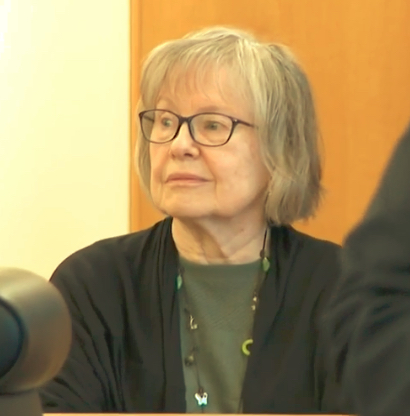
By GARRY RAYNO, InDepthNH.org
CONCORD – A phrase often bounced off the marbled-lined walls of the State House is “that is a slippery slope,” meaning once you start down that path there is no turning back.
The phrase intends to heighten the sense of foreboding for future action if one little step is made.
The 2022 session of the legislature will have many examples of paths leading down that slippery slope.
Education
This slippery slope began several years ago, after lawmakers failed to approve several voucher proposals allowing students’ parents to shop for alternative educational programs with taxpayers’ money.
So a fall-back position of little steps was proposed to allow businesses to donate some of their state business tax liability to a scholarship fund for economically qualified students.
Senate Bill 372 in 2012 established the Education Tax Credit program allowing donations of up to $600,000 from businesses that would receive a business tax credit equal to 85 percent of their donations.
Initially most of the “scholarship money” or donated taxes came from one company in Barrington, but the program grew and then individual tax obligations were included allowing donations that are a credit against an individual’s interest and dividends tax obligations.
During the 2020-2021 school year, 146 students were awarded scholarships totaling about $1.3 million with almost $3 million in tax credits in reserve.
However, those numbers pale in comparison to the voucher or “education freedom accounts” program approved in the 2022-2023 biennial budget last June.
Although Education Commissioner Frank Edelblut predicted there would be few takers in the first years, 1,600 students were approved this school year, costing about $8 million in unappropriated funds. The money for the program comes from the state Education Trust Fund which pays for adequacy grants to public schools, including charter schools.
This coming session a bill would allow school districts to set up similar programs — without some of the guardrails — using property tax money to help pay for private, religious, alternative or home schooling of a parent’s choosing.
It is difficult to imagine many school districts — outside of maybe Grafton — deciding to opt in to the program, but there may be some.
Using public money for private, religious, alternative and home schooling has grown in leaps and bounds in the past few years, particularly this past session, but the educational outcomes will not be known for several years.
Abortion
Almost every year for the last two decades, the legislature has had to decide whether to restrict abortion rights and until recently refused to do that.
The first restriction was approved in the 2003 session of the Legislature with parental notification but was appealed to the U.S. Supreme Court because it lacked a medical exception protecting the life of the mother and was found unconstitutional.
The law was repealed in 2007 and then another law with the medical exemption was approved by the Legislature in 2011.
There have been some minor changes and attempts to put the provisions of Roe vs. Wade into state law, but most have failed until this year’s session.
Under current law, abortions after the 23rd week of pregnancy are banned — also approved under the state budget signed by Gov. Chris Sununu — and an internal ultrasound is also required for an abortion at any point in a pregnancy.
It was the first abortion ban in the state’s history since the U.S. Supreme Court’s Roe vs Wade decision.
Since the new ban was approved, Texas lawmakers decided to ban abortions after the first six weeks of a pregnancy and set up an enforcement mechanism to reward private citizens for reporting law breakers, something like vigilantism.
The Texas law will be debated in the New Hampshire legislature this session under an identical bill.
And the U.S. Supreme Court has allowed the Texas law to stand until it decides whether it is constitutional and last week heard oral arguments on a Mississippi law banning abortions after 15 weeks with no exceptions for rape or incest.
Whether the bill passes next session or the U.S. Supreme Court makes its ruling, lawmakers will be hotly debating the controversial issue next session.
Vaccination Mandates.
With the state experiencing record numbers of COVID-19 infections, hospitalizations, rising death rates and a new variant on the horizon, the legislature will debate numerous bills to either ban vaccine mandates of all kinds or mask requirements.
The legislature last year approved a bill that prohibits public entities from requiring vaccinations for employment or to enter a public building, with the exception of public health care organizations and facilities.
Lawmakers were not successful last year in banning similar requirements for private businesses, organizations or non-profits.
But this year there is at least one bill that would do that and many more that are likely to be consolidated would accomplish the same thing.
Several proposed bills would prohibit school districts from requiring masks for students, faculty and staff, although the state has essentially left that decision up to local school boards and administrators.
Edelblut and Sununu back an administrative rule that would require schools to hold in-person sessions and if they shut down and use remote learning to combat an outbreak, they would have to make up the days at the end of the school calendar. It would be like using more than the anticipated snow days.
Racial Education
The budget package also contained a reworked stipulation that stemmed from an attempt to stop the teaching of critical race theory and other “divisive concepts” in public schools.
The provision prohibits discussions that any group is inherently racist, sexist or oppressive — consciously or unconsciously — or is superior or inferior to another.
The provision was substituted for a bill that would have prevented the teaching of divisive concepts such as critical race theory in public schools or for diversity training for public employees.
A recent press release from Edelblut announced a process to report any teacher someone believes may have violated the law. That inspired the New Hampshire affiliate of the conservative Moms for Liberty to offer a $500 reward to the first person to successfully “catch” a teacher breaking the law.
A bill in the upcoming session is based on a Cold War-era law requiring “teacher loyalty.” The bill would prohibit teaching the country’s history in a negative light such as its racist beginnings. And the bill would ban teaching socialism, communism or marxism.
Maybe in a couple of years, the state will do what Texas does and approve the books students use in school to ensure the state is seen in the proper light.
Death and Taxes
Benjamin Franklin is credited with the saying “Nothing in this world is certain but death and taxes.”
There is a third item that needs to be added: Greg Moore’s Christmas card will arrive in your mailbox the day after Thanksgiving.
Moore heads Americans for Prosperity — New Hampshire, the Koch organization’s “educational arm,” but his Christmas card list spans the political spectrum.
Many people in the rarefied atmosphere of Concord would be disappointed if his Christmas cards do not arrive on time, but they always do.
Some insiders time their cards to arrive earlier than his, but no one has been as consistent as Moore. When you open his card, you know the Christmas season has finally arrived.
Garry Rayno may be reached at garry.rayno@yahoo.com.
Distant Dome by veteran journalist Garry Rayno explores a broader perspective on the State House and state happenings for InDepthNH.org. Over his three-decade career, Rayno covered the NH State House for the New Hampshire Union Leader and Foster’s Daily Democrat. During his career, his coverage spanned the news spectrum, from local planning, school and select boards, to national issues such as electric industry deregulation and Presidential primaries. Rayno lives with his wife Carolyn in New London.




